- Home
- Stephen Hunter
Tapestry of Spies Page 3
Tapestry of Spies Read online
Page 3
“Very crisp, sir.”
“A bun, then. I’ve just asked Florry if he’s a red.”
“Oh?” said Vane distractedly, pouring tea and sorting buns, “and what did he say?”
“He wouldn’t answer. Got his back up.”
“Bully good for him, I say. Now don’t let the major push you about, Mr. Florry. He can be an awful brute.”
“Now then, Florry,” said the major, “suppose we were on the lookout for just such a chap. Let’s say, for a matter of argument, a genuine red. Oh, I’m not talking your harmless parlor revolutionary, all hot air and castles in Spain, your blowsy English eccentric who likes to stand on soap boxes in Hyde Park on Sunday and harangue the passers-by. No, let’s just suppose that somewhere there is a fellow who in his heart of hearts really wants Uncle Joe Stalin to come over here, lock us in chains, turn his secret policemen loose, and teach our children to read Russian. Do you follow me so far?”
“Where is all this heading?” said Florry warily.
“We have information from a source we’re not permitted to reveal that such a chap as we’re describing in this highly theoretical conversation may in fact exist.”
It suddenly dawned on Florry. These men were spies! In the service, they’d been called “politicals,” though perhaps the term had gone out of use by now. These were the chaps that Kipling wrote about in Kim, the great game fellows.
“You’re smiling, Mr. Florry. Something funny here?”
“No.”
“Ever hear of the Official Secrets Act, Mr. Florry? Nasty bit of legislation, went into effect in ’thirty-two. Could put a chap away for seven years in the Scrubs. What I’m about to tell you is protected by the Official Secrets Act, Mr. Florry. It must never leave this room. Understand?”
“I must say, I don’t see how I can be of any help to you.”
“Oh, you can be of great help, Mr. Florry. Now listen closely. In 1931, while you were off having adventures in Burma for the Crown, a Russian secret intelligence operative named Levitsky recruited a Cambridge University student—young, gifted, clever, a lad with connections, with charm, with immense potential—to spy for Russia. As the first step of bringing Uncle Joe and his ways over here.”
“Why, that’s revolting,” blurted Florry, not quite sure himself how he meant it.
“Indeed it is,” said the major.
“But what has all of this to do with me? I never went to Cambridge. I can’t help you find him.”
“Oh, we need no help in finding him, Mr. Florry,” said Vane cheerfully. “We know who he is, of course. What we need is somebody to—oh, what’s a nice term? To stop him, shall we say? To disconnect him. Did the major tell you, he went to a hanging once, too, Mr. Florry. In East Africa, wasn’t it, sir? Before the Great War?”
“In ’eleven, actually,” the major said. “Ghastly thing. One of the boys got drunk on honey wine on safari and actually attacked the mem-sahib with a panga. Cut her on the arm, left a scar. They had to make an example of the boy. Still, necessary as it was, it was horrid.”
“What do you mean ‘stop’?” Florry said. “I can tell you, I don’t like the sound of that word.”
“Play chess, Mr. Florry?”
“Some. A little. Not very well.”
“Ever read Sacrifice Theory by E. I. Levitsky? Published in German in Leipzig in 1901?”
“Haven’t read it, no.”
“Written by a young Russian political exile who’d just won an important tournament. Don’t play myself, although I ran into the author some years later under peculiar circumstances. They say sacrifice is what makes a chess genius a chess champion. The shrewd calculation of present loss against future gain. It’s what Levitsky specializes in, the best part of his game. They call him the Devil Himself; that was his nickname as a chess player back at the turn of the century. Brilliant. Quite an opponent.”
“Major Holly-Browning, I wonder if—”
But the major silenced him with a stout finger, as a prefect silences a particularly rambunctious sixth-former, and launched ahead. “Levitsky operated in this country during most of 1931, our information relates. He was at that time head of the Western European Bureau of Comintern, and a lieutenant colonel in the GRU, which is the Russian military intelligence department. Comintern is their apparatus for coordinating world propaganda and espionage. According to our source, early in that year Levitsky became acquainted with and began to cultivate a chap who was perfect for his purposes. Levitsky was talent hunting. He was on safari, one might say, hunting for that perfect young Englishman with a penchant for treason. At any rate—”
“Major Holly-Browning, I’m certain all of this is perfectly interesting to you but I can’t quite—”
“Oh, he’s just about there, assistant superintendent,” said Vane sweetly.
“Yes, Florry. Another second has it. At any rate, this Levitsky, our source says, ultimately came in contact with a group of clever lads called—perhaps you’ve heard the name; it’s a secret club, fashionable left-wing dons, that sort—called the Apostles.”
So that was it. Florry sat back. He took a deep breath with some difficulty. He felt the prickles of sweat begin to tingle in his hair.
“Interesting, eh, Vane? Speak the magic word and the impatient, thick-hided young writer instantly loses his color and begins to perspire.”
“I shouldn’t wonder,” said Florry. “It isn’t every day one is asked to inform on one’s best friend.”
“Yes, he’s made the leap,” said Vane. “You said he would, sir, and he did. But Mr. Florry, don’t you think it would be more accurate to say ‘former best friend’?”
Florry rose. “I think you are making a grave and foolish mistake. You are acting reprehensibly. We never treated the wogs this crassly out East, and you are talking about an Englishman of unimpeachable reputation and accomplishment.”
The major stared at him quite placidly.
“Some more tea, sir?” said Vane. “Or a nice bun. They’re very, very crisp, and I was able to find cinnamon.”
“I do not want a bloody cinnamon bun. I want to leave, thanks.”
“Florry, best to sit down.”
“Julian Raines is a poet of distinction as well as a brilliant scholar. He graduated with starred double-first at Trinity College, Cambridge. His poem ‘Achilles, Fool,’ is one of the key texts in the modernist movement. His—”
“Yes, I’ve read it. ‘In the end, it’s all the same/In the end, it’s all a game.’ May I ask, do you agree with those sentiments, Florry?”
“He wouldn’t spy for a batch of bloody Bolshies in overcoats twelve sizes too big. Good heavens, he wouldn’t even have tea with them.”
“He certainly treated you as if you were a figure in a game, wouldn’t you say, Florry? You simply ceased to interest him and he cut you bloody dead. We’ve checked, Florry. You weren’t worth much after that, eh? Went off and hid in the coppers in Burma, right? Couldn’t face life without the great Julian at your side? Bit of a schoolboy crush. Happens all the time, Florry. Only with you, it cut to the bone.”
“He wouldn’t do it,” said Florry. “Yes, Julian’s a bastard. Yes, he likes to hurt people. But he wouldn’t do anything like—”
“The facts are very clear. Of the Apostle Circle of the year 1931, Julian is certainly the boy who fits most perfectly with our source’s description of Levitsky’s recruit. As you say, he was brilliant. His mother is wealthy as well as well connected to the upper-strata political and artistic people of the country. She could get her dear Julian any position he wanted in a liberal or socialist government somewhere down the road. He would have access to the very most important circles.”
“Julian is an artist, a writer. A true artist. He’s not interested in bloody politics.”
“Julian Raines is many men. It simply won’t do to fit him into an absolute category. He’s a brilliant dabbler. At everything he tries he succeeds. And perhaps in this lofty sense of brilliance, he’s com
e to see himself beyond the rest of us poor blokes. His analysis of history, for example, would be just that much keener. Who’s to say he hasn’t decided to have a dabble at the spy business, Florry, and make the success of it that he made of poetry and that he now makes of journalism?”
“Who is saying these awful things? Some ugly little man in a trench coat?”
“Mr. Florry,” said Mr. Vane, “you were a copper. You know that we’ve got to use informants.”
“A Russian. A secret policeman. Fleeing Stalin’s executioners, that’s all we can tell you,” said the major.
“Some seedy little Johnny Red on the bloody run from his bosses. The bastard would say anything to get himself into the country.”
“Actually, he’s not in the country. He’s in the United States. He’s told his story to the Americans and they believe him.”
“The awful Yanks, yet! Good Christ, this gets seedier as it goes on.”
“More tea, Mr. Florry?”
“I think it’s necessary for me to leave.”
“One last factor, Mr. Florry. Our Russian tattletale worked in Amsterdam. He said his last job for his employers involved opening a special, secret communications link to Barcelona. He concluded from the rush and risk involved that the link could only be to service a secret, most sensitively placed agent. This happened on five August; Julian Raines arrived in Barcelona on four August. And of the Apostle group, he and he alone is in Spain.”
“You see, Mr. Florry, it is quite clear.”
Florry shook his head.
“What we need is somebody to go out to Spain and establish an especially close relationship with Julian Raines. We need somebody to keep watch over him; we need reports on his whereabouts, his chums, his little jobs for the Russians. We need evidence.”
“And then?”
“And then do the necessary. As the necessary has been done before, Mr. Florry, by brave young Englishmen.”
“To kill him?”
“One stops one’s enemies as one can or as one must.”
“Good Christ.”
“Were you in the war, Florry?”
“No, of course not.”
“Well, I have been in several. One learns to do what one must.”
Florry saw now that the whole thing was a sham: Sir Denis and The Spectator working in concert with His Majesty’s government in the subtle, cozy, pleasant, particularly English way of doing such things. Offer Florry the life he wants; in exchange, take only his soul.
“No,” Florry said. “You force me to be somewhat moralistic about this. It’s simply wrong.”
“But surely, Mr. Florry, one’s country counts for more than—”
“One’s friends are one’s country; or rather, without them, one’s country is meaningless.”
He got up to leave. “I’m sure you will inform Sir Denis of my decision.” He turned smartly and walked to the door. It wouldn’t open.
“Mr. Florry,” said Mr. Vane with some embarrassment, “there’s a rather large constable from Special Branch out there at our request. It’s his bulk that is blocking the doorway and he has his instructions.”
“To arrest me, I suppose. On the charge of Refusal to Take Part in Ugly Plots.”
“Mr. Florry, I must say, it’s your sanctimony that I find the most difficult to bear,” said the major at long last. “Vane, tell the moralistic Mr. Florry what the constable has in his pocket.”
“It’s a warrant. And it is for your arrest. But the charge is perjury.”
“Perjury?”
“You do remember Benny Lal, do you not, Mr. Florry?” asked Vane.
Something ripped at Florry’s chest.
“One would think so. You wrote about him quite eloquently. Although you left out certain details, assistant superintendent,” said the major.
Florry looked at the man, hating and fearing him at once.
“Last year, another man confessed to the murder of U Bat. He was a member of the Burmese Po Ben Sien, or Freedom Party, a militant nationalist group that we believe to be controlled by Julian’s friends at Comintern. The movement eliminated U Bat when they realized he was secretly reporting to one of our politicals in the area. They killed him and tried to place the blame on us.”
“So you’ve got me. Some years ago, I made the mistake of telling less than the truth, and now you’ve got me.”
“Well, the option is a term in the Scrubs. Four years, I believe, is the term for perjury in a capital case. And Mr. Florry, even in the Scrubs there are cell blocks that might be pleasant and cell blocks that might be dreadful for such a handsome chap as you. I might go so far as to use what little influence I’ve got to see you end up among nellie-boys and poofs of a particularly aggressive nature. Not a pretty fate for a public-school boy.”
“I say, you are a bastard, aren’t you?”
“As a writer, you enjoy irony, don’t you, Florry? Here’s one for your collection. I have no doubt you did exactly the right thing in the matter of U Bat. It was necessary to close that case swiftly. At the same time, I have absolutely no compunction against using it against you now, to force you, once again, into doing the right thing. Your duty. We are quite prepared to see charges placed.”
“I’d go to the press.”
“With Official Secrets, we can shut the press down.”
Florry could only look off, through the window. He could see the London skyline, looking very much as it had looked in Dickens’ day, a flat, neat vista of little houses and chimneys. It looked like a set of parcels laid out on the postman’s table, and among the buildings crept, anonymous, huddled, bent, hustling, the citizens of the British Empire, faceless and nameless, in whose cause he had just been dragooned.
“I had no idea the British government could be so ruthless.”
“The world has chosen to give us ruthless enemies, Florry.”
“It really does have to be you, Mr. Florry,” said Vane. “You are a writer and have cause to travel where he travels. You know him well. At a point, you knew him very well, in the ways that public-school boys can come to know each other. Those old school ties, Mr. Florry, they count for something. You know they do. Then, you are an ex-policeman, experienced in security matters. You do fit the ticket, Mr. Florry. And it is, sir, something of a duty.”
“And one other thing, Florry,” said the major. “You hate him. Or you should.”
Julian, thought Florry, why did you hurt me so? He remembered the boy he’d loved and the boy who’d almost killed him.
Yes, I hate you. It was true. By some subtle alchemy of the emotions, his passion had turned abjectly to loathing. He could remember Julian cutting him for the sheer amusement of it all.
“We’ll be in touch concerning details, Mr. Florry,” said Mr. Vane. “We’ll provide everything, of course, No need to do this thing on a miser’s scale.”
Florry looked up to see that his two new employers had risen and put on their coats.
“Good day, then, Florry. Glad to have you aboard,” said the major. Florry shut his eyes. He heard the door close and the quiet pad of feet down the hall. After a bit, he left, too.
2
THE LUX
BY LATE 1936, THE MOST TERRIFYING SOUND IN ALL Moscow—in all Russia, for that matter—was the sound of a single knock. It always came at night—late. And it always meant but one thing.
The young men from the organ of state security, the NKVD, were invariably polite, though a bit distant, as they stood there in their green overcoats and their fur-muffled winter caps with their hands on the Tula-Tokarev automatics in the holsters at their belts. Mercifully, they kept the formalities to a minimum: they read the charges, they allowed the accused a last word with his loved ones, a chance to grab his coat, and then they removed him—forever.
It was the time of Yeshov—Yeshovchina, in the Russian—after Nikolai Yeshov, the dwarfish chairman of state security. But the process of purification represented by this massive wave of arrests surely originated wit
h the general secretary, whom most of the old revolutionaries remembered as Koba. Koba sought to scour the party clean, to make it a precise, scientific instrument, to do away with the last remnants of bourgeois sentimentality so that the future could be faced with strength and will and resolve. Koba most certainly sought also to make certain he was never arrested.
In one Moscow building the arrests were greeted with something beyond even fear and despair, something unique to the city: irony. The building stood on Gorky Street, hard by Pushkin Park, not three-quarters of a downhill mile from the Kremlin itself, in the very center of the city. It was an ornate, Italianate construction, rich in marble and brass, and its upper floors on the western side provided a grand panorama of the Kremlin’s domes. The place bore the name HOTEL LUX, on a brass plate untouched since 1917. Once, in the early years after its construction in 1907, Russian and European nobility, American entrepreneurs, German adventurers, Jewish diamond merchants, and exceedingly expensive courtesans had occupied its stately rooms. These days, the Lux appealed to a different clientele.
It had degenerated into a dirty, dingy ruin, its marble pitted and brass unpolished, but the dreams dreamed in its bohemian corridors and cabbage-stinking rooms boasted as much scale and romance as any dreamed by capitalists. For the Lux served as the unofficial headquarters of Comintern, or the Communist International, which, while a direct apparatus of the GRU, was at the same time, since having been decreed into existence in 1919 by Vladimir Lenin, the coordinating organ of the World Revolution.
Its inhabitants now comprised almost a Party congress of famous, infamous, notorious, and violent European leftists, men who had lived their whole lives underground, in the swirl and fog and rat hunt of revolutionary conspiracy. The revolution achieved, it was seized from them; they became its victims. Thus the nighttime visits of the young policemen—they were frequent at the Lux—had a special bitterness.
And how the old revolutionaries talked of this! Their lives had become almost pure language. They argued endlessly, like old rabbis at yeshiva. It obsessed them. What was Koba doing? What was his vision? By what theoretical underpinnings did he justify the killings? How did Yeshovchina fit into the ultimate trajectory toward socialist victory? And who was taken last night?

 Point of Impact
Point of Impact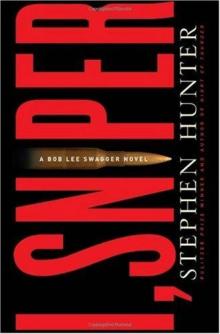 I, Sniper
I, Sniper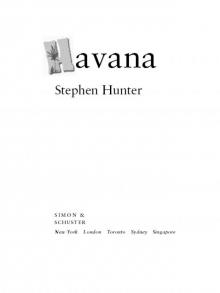 Havana
Havana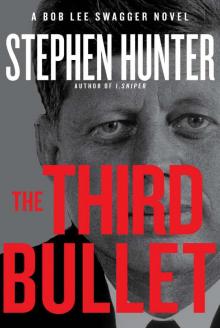 The Third Bullet
The Third Bullet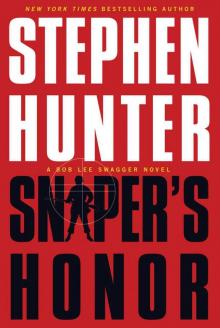 Sniper's Honor: A Bob Lee Swagger Novel
Sniper's Honor: A Bob Lee Swagger Novel Dirty White Boys
Dirty White Boys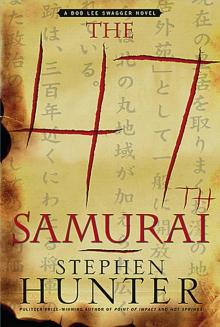 The 47th Samurai
The 47th Samurai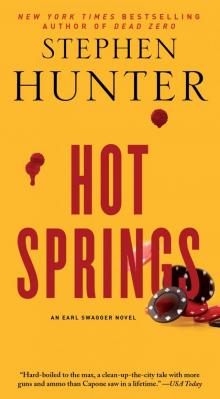 Hot Springs
Hot Springs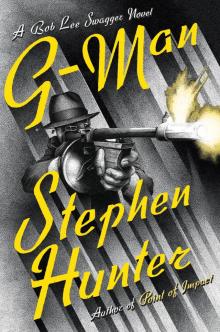 G-Man
G-Man Black Light
Black Light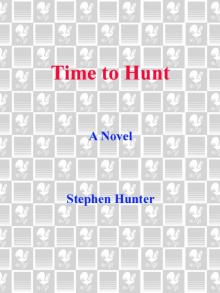 Time to Hunt
Time to Hunt The Day Before Midnight
The Day Before Midnight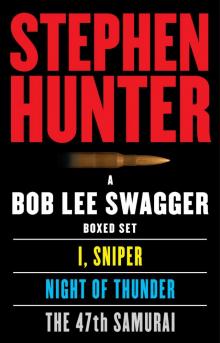 A Bob Lee Swagger Boxed Set
A Bob Lee Swagger Boxed Set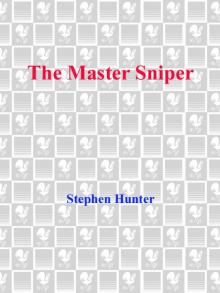 The Master Sniper
The Master Sniper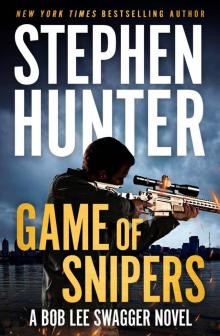 Game of Snipers
Game of Snipers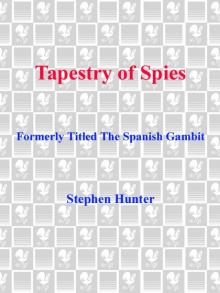 Tapestry of Spies
Tapestry of Spies Citadel
Citadel The Second Saladin
The Second Saladin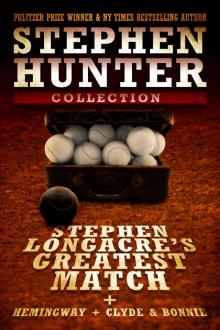 Stephen Longacre's Greatest Match
Stephen Longacre's Greatest Match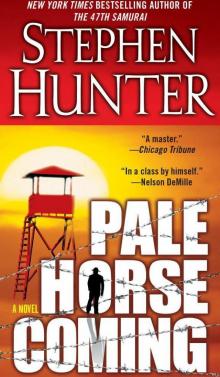 Pale Horse Coming
Pale Horse Coming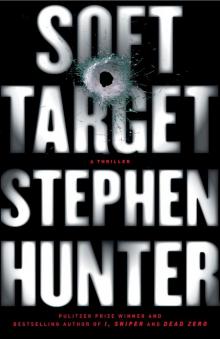 Soft Target
Soft Target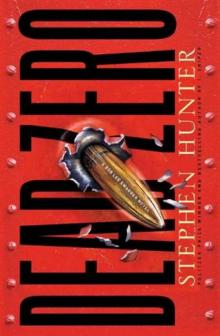 Dead Zero
Dead Zero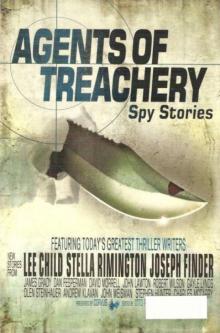 Casey at the Bat
Casey at the Bat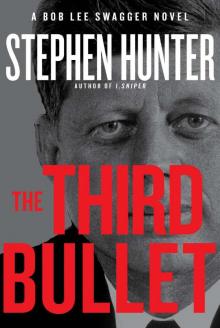 The Third Bullet bls-8
The Third Bullet bls-8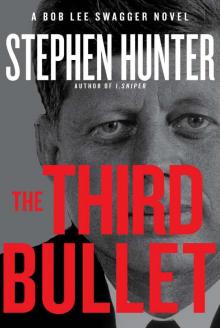 The Third Bullet: A Bob Lee Swagger Novel
The Third Bullet: A Bob Lee Swagger Novel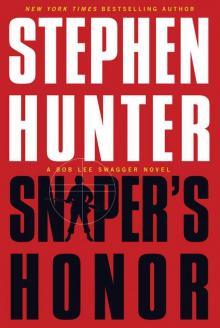 Sniper's Honor
Sniper's Honor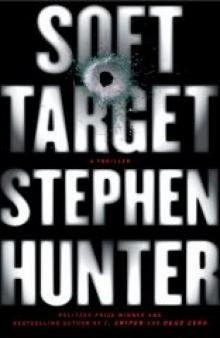 Soft target rc-1
Soft target rc-1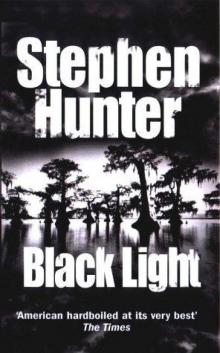 Black Light bls-2
Black Light bls-2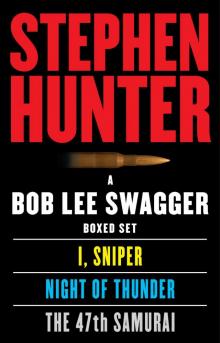 A Bob Lee Swagger eBook Boxed Set: I, Sniper, Night of Thunder, 47th Samurai
A Bob Lee Swagger eBook Boxed Set: I, Sniper, Night of Thunder, 47th Samurai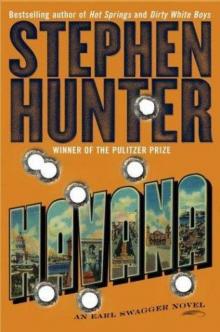 Havana es-3
Havana es-3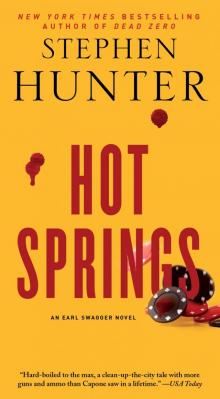 Hot Springs (Earl Swagger)
Hot Springs (Earl Swagger)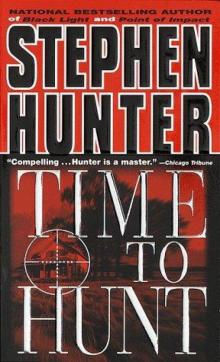 Time to Hunt bls-1
Time to Hunt bls-1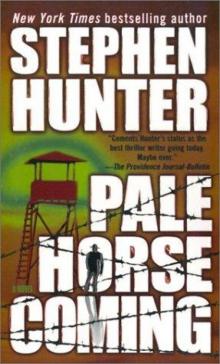 Pale Horse Coming es-2
Pale Horse Coming es-2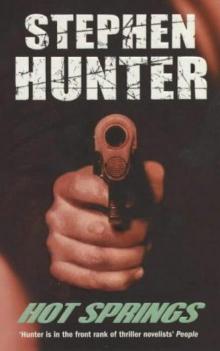 Hot Springs es-1
Hot Springs es-1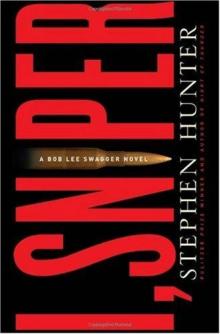 I, Sniper: A Bob Lee Swagger Novel
I, Sniper: A Bob Lee Swagger Novel